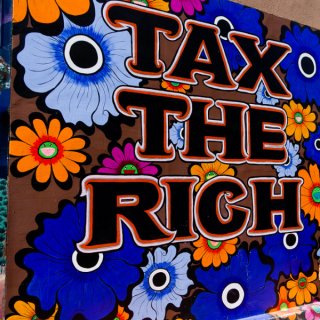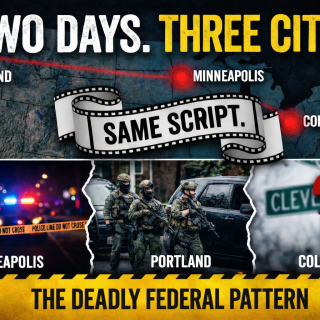Advertisement
I call the public’s attention to today’s radical, unprecedented, unconstitutional, and inhumane campaign to ban books in schools. It combines intersecting dimensions that span history, education, child development, and respect for the text and legal and cultural traditions of “We the People,” “Public Welfare” and “Public Interest.” It includes the rights of children, for which we fought from the late 19th century into the present.
I write as a historian of literacy and education, and children and youth; a teacher of college students for almost 50 years; and a concerned citizen. My colleagues and friends include authors of national prize-winning, young adult novels banned in several states on false grounds.
Today, unlike in the past, an organized, well-funded, dark-money national campaign led by the Koch brothers, Heritage Foundation, Bradley Foundation, Robert Gates, and others, floods social media to frighten ignorant, right-wing sympathizers into intimidating local school boards, superintendents, and school principals to ignore their own rules and ban or “weed out” books that the aggrieved have not read. These radicals admit to reading scripts from websites and to not having children in the schools they attack. (See Graff, “The nondebate about critical race theory and our American moment: The interaction of past, present, and alternative futures,” special issue on Memory Laws or Gag Laws? Disinformation Meets Academic Freedom, Journal of Academic Freedom, 13, Fall, 2022, forthcoming.)
Across the United States and in Ohio today, the dishonest, right-wing campaigners—the new illiterates—do not and perhaps cannot read the books they attack. These books are very often classics, praised by educators and child development experts, popular among children and youth, best-selling, and in-demand by both young and old. (See Graff, “Know Nothings: A scholar and author examines the banning of books, past and present”; Ashley Hope Perez with Harvey J. Graff, “I wrote ‘Out of Darkness’ for my high school students. Now high schools are removing it”; Perez and Graff, “Book banning isn’t about content; it’s a fight for supremacy in culture wars.”)
In contrast to earlier waves of book banning, today’s banners’ action lists speak loudly about their skirting due process or protection of students’, educators’, or librarians’ real interests—and their Constitutional rights. The unenforceable, illegal HB327 and HB616 only imitate other states. Their sponsors are unable to answer any questions about them. (See Morgan Trau, “Book bans accelerate in Ohio as new bill (HB 327) aims to prohibit ‘controversial’ topics.”)
For example, Hudson City Schools District removed at least four books in the last school year. The books, 642 Things to Write About, A Girl on the Shore, Gender Queer, and Lawn Boy are charged that “all contain language that has been quoted as ‘inappropriate,’ ‘offensive,’ or ‘sexually perverse.’” Nothing is defined, and the district’s formal procedures are pushed aside.
642 Things to Write About is a book for Hudson High Schools senior College Credit Plus writing class. College Plus and Advanced Placement history classes are also under attack for their content. The book includes a prompt that asks readers to “write a sex scene you wouldn’t show your mom.” But that prompt was never assigned. It also calls for practice in writing and use of the imagination, not personal confession or obscenity. The banners project their own perversity. 642 Things was removed from course lists. The illiterate banners care nothing for the young and their rights to grow up and mature.
Banned at least temporarily, the other books face the same false accusations. According to a Schools spokesperson, they “are/were simply library books in our high school library. They are not—and never were—part of our curriculum.”
What these books share is stark: They are authored by and/or written about non-white, differently gendered persons. National research confirms that far more “profane,” “obscene,” and “offensive” works by white men with white heterosexual characters are almost never challenged. The issue is not that “all contain language that has been quoted as ‘inappropriate,’ ‘offensive,’ or ‘sexually perverse.’” If the issue were the alleged profanity, indecency, or “protection of children,” far more books by while males would be on the lists. So would the Old and New Testaments of the Bible.
The banners are a small, undemocratic minority of Americans and parents. They speak for very few but speak loudly because of their dishonest manipulation of racist, xenophobic, sexist, transphobic, and white supremacist fears and grievances.
Out of a deeply rooted fear of loss of power that they may never have held, these banners assault the human dignity, rights, development, and legal rights especially of the young. Their illegal campaigns are based on lies, manipulation, intimidation, and emotions, not on logic, laws, or knowledge. These forces of reaction and resentment grow alongside the slow movement toward racial equality and integration for three-quarters of a century. They rise to new heights today. (See Graff, “The State of Ohio assaults its own children: The war on those least able to defend themselves.”)
These actions do not derive from genuine parental concern. They are promoted by right-wing (not conservative) organizations like Moms for Liberty and No Left Turn in Education. Their anti-literacy and anti-child fear-mongering ricochet through social media echo chambers. Attacking books that school professionals carefully evaluate is deeply hypocritical as well as ignorant. The same people who assert that teens can handle guns and have babies also claim that teens must be protected from award-winning books carefully written for young people.
Those who seek to remove books from schools are not concerned about the books. The books are visual and material symbols, proxies in a “culture war” where the real objective is obtaining greater political power and asserting the supremacy of a specific, minority world view.
Banning books is inseparably interrelated to other bans that today’s anti-democratic and unconstitutional ideologues support: abortion rights and women’s rights to control their bodies; LGBTQ and same-sex couples’ rights; First Amendment rights to free speech; transgender athletes’ rights to participate in school sports and requisite, gender-affirming medical care; and restriction of voting rights. All are unprecedented historically in their magnitude and ferocity. We must understand and oppose book banning in its full, anti-American contexts.
------------------------------
Harvey J. Graff is Professor Emeritus of English and History and Ohio Eminent Scholar at The Ohio State University. He is the author of many books on social history. His specialties include the history and present condition of literacy and education including higher education, children and families, cities, interdisciplinarity, and contemporary politics, culture, and society



